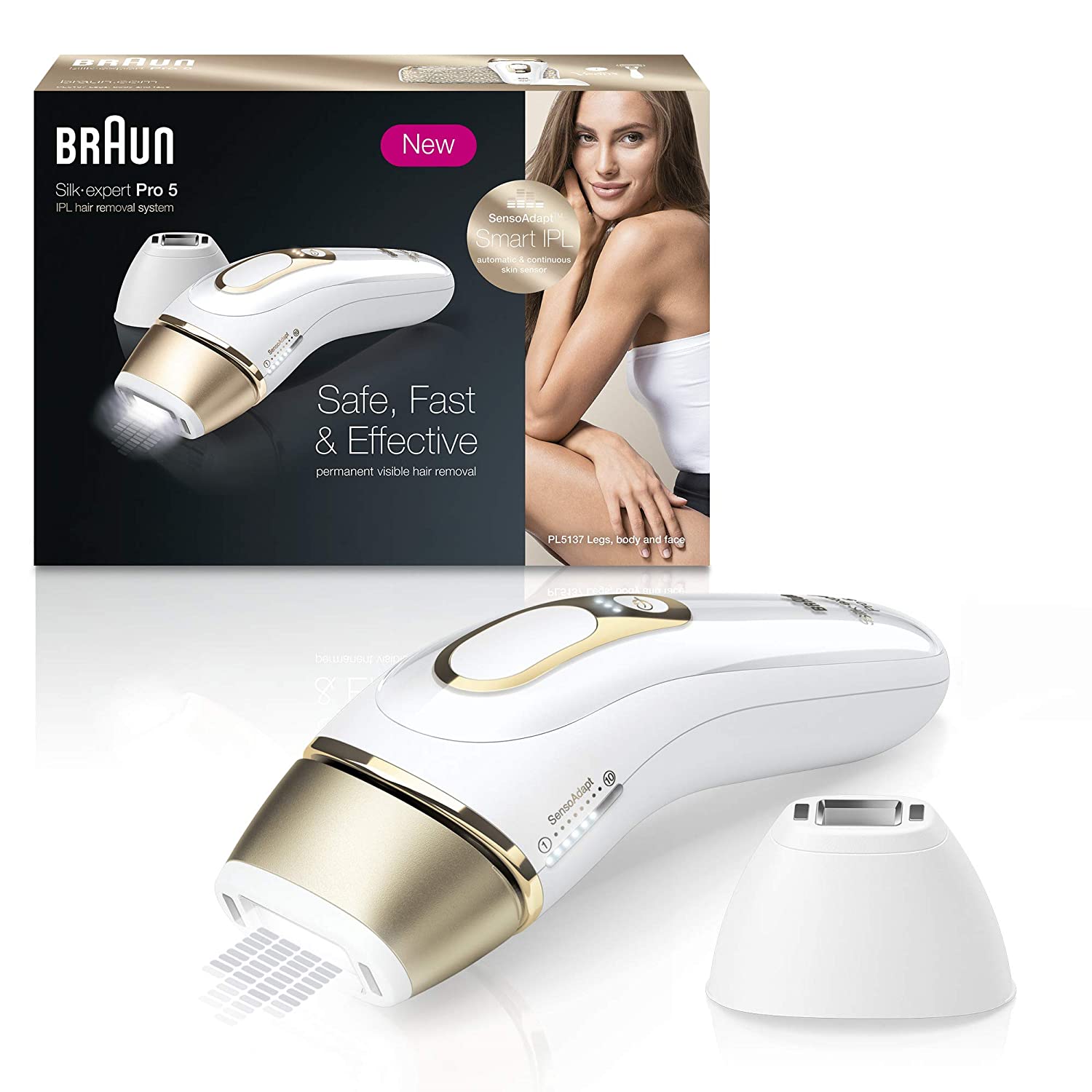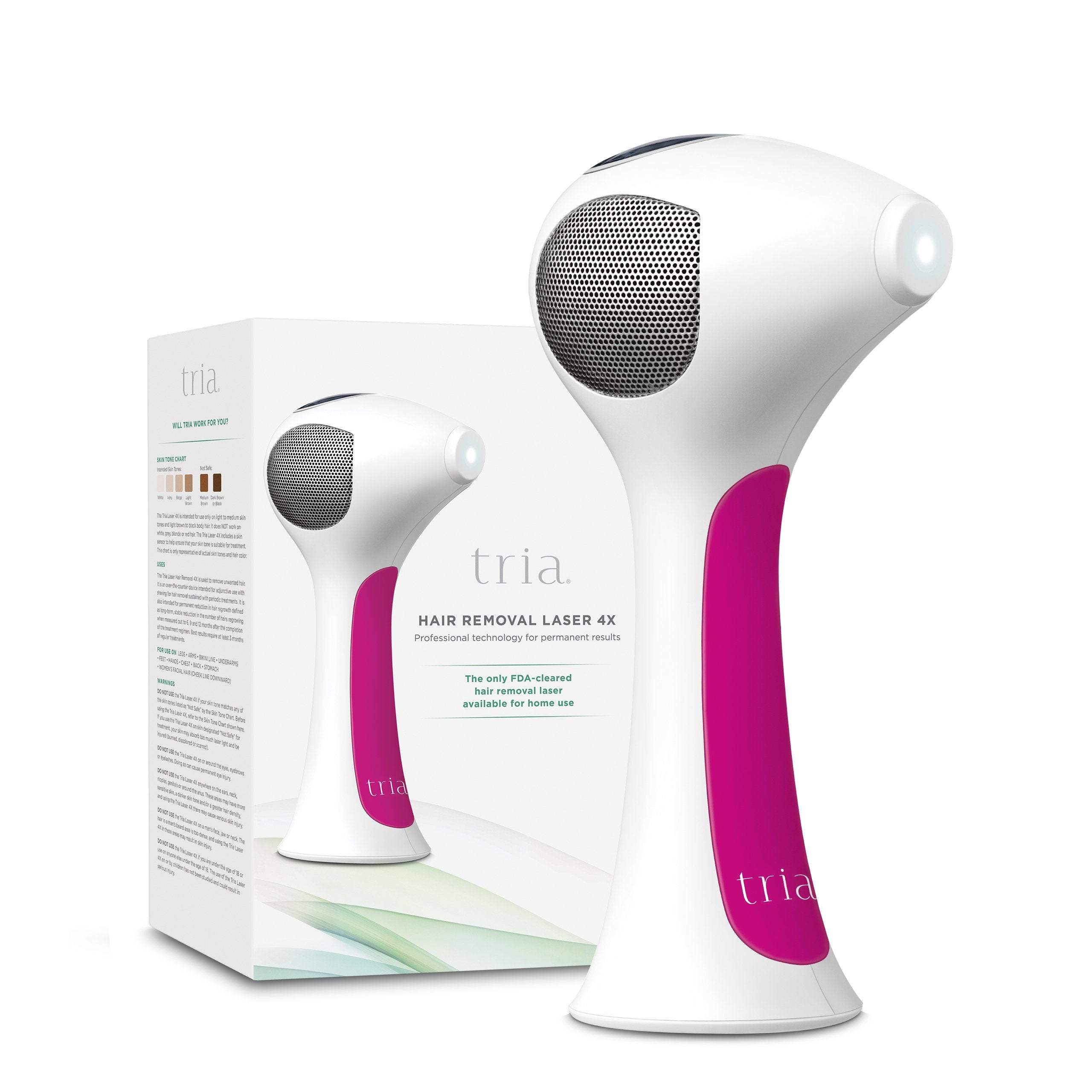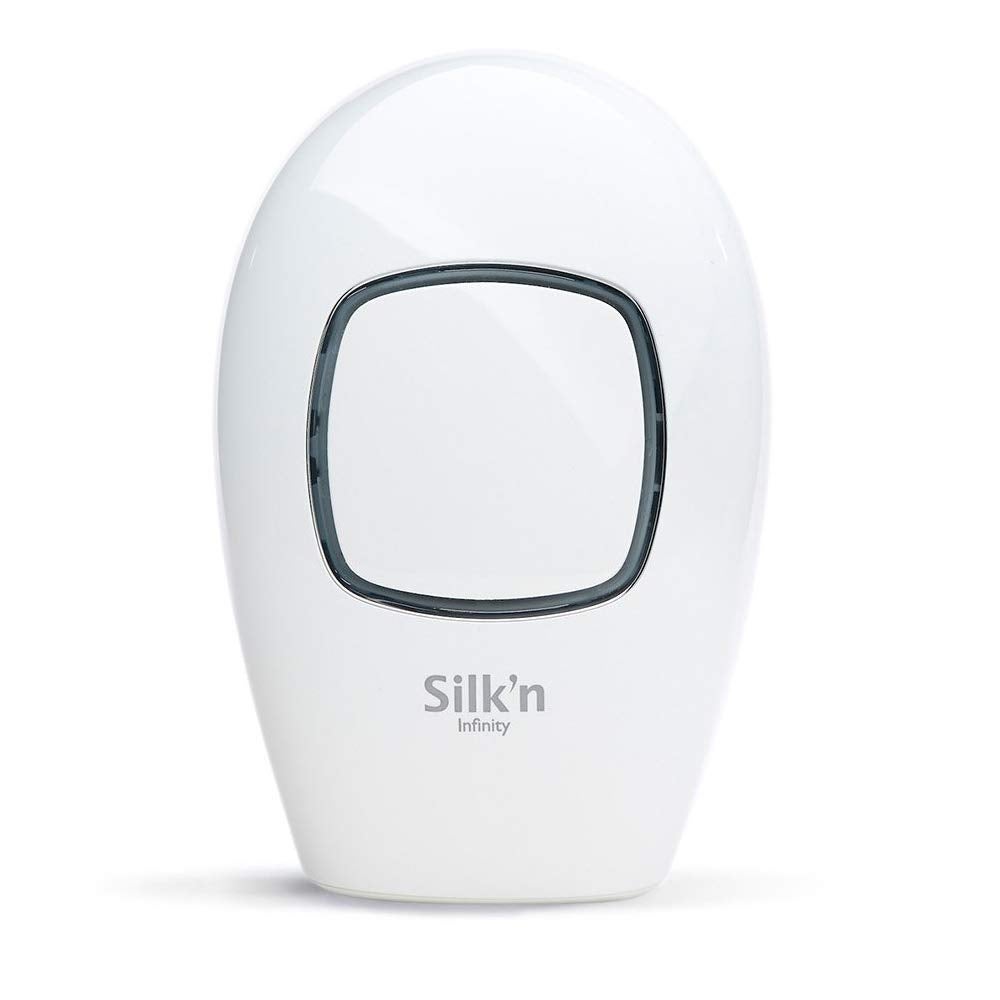I often joke that when god was handing out body hair, I was at the very front of the line. While my Greek Cypriot roots have blessed me with long lashes, thick hair, and strong brows (which mostly terrify threading technicians), polycystic ovary syndrome (PCOS) has added to the list a prickly upper lip, unruly snail trail, long sideburns, back fuzz, and thick chin hair.
As you might imagine, being an excessively hairy girl was a problem throughout school. Comments and taunts were commonplace and my mental health suffered. I just wanted to get rid of it. Now that I'm a beauty editor, not much has changed. While the comments have stopped (and any adult who still refers to body hair as "unfeminine" or a "turn-off" isn't worth your attention), I'm a pro at hair removal. I have a cabinet filled to bursting with various epilators, clippers, IPL machines, wax strips, hot wax, tweezers, and razors. Don't ask me to choose my fighter; I am a master of all seven.
AdvertisementADVERTISEMENT
Before quarantine, hair removal was one of those things I did mindlessly, day in and day out, without giving it any real thought – like brushing my teeth. I've never missed a laser hair removal session, have my leg waxer on speed dial, and regularly talk to dermatologists about the best way to manage my excess hair. That is until mid-lockdown, when I neglected my hair removal regime thanks to a combination of beauty salon closures, endless drugstore lines, and a significant change to my everyday routine.
Today, body hair is no longer as taboo as it once was, with brands like Billie and Flamingo challenging the way we talk about it, a deeper understanding of hormonal conditions such as PCOS and overactive thyroid, and a less judgmental attitude all round. Of course, I don't need to tell you that you don't have to remove your body hair. That is a matter of choice. But a few weeks into lockdown, I felt confronted by those spikes of hair poking defiantly through my skin. "I haven't shaved my legs in weeks and I kinda don't give a shit," my best friend messaged me recently on WhatsApp. I couldn't relate.
Self-care is a broad umbrella term
At 27, I like to think that I remove my hair for myself, not to fit in with a narrow beauty ideal or to escape playground jibes. Even though pressure to maintain hair-removal practices is constantly called into question – especially in the beauty industry – I have realized that I am reluctant to let my excess hair grow out. It's not easy, and I've come to accept that that's okay, too.
AdvertisementADVERTISEMENT
In the name of feminism, friends and past roommates have chastised me for wanting every single strand gone. What's wrong with it? It's just hair. But in lockdown, my stringent hair removal routine means more than a quick shave. I could argue it is a form of self-care.
For some, choosing not to remove body hair, excess or otherwise, can be empowering, liberating. For me, nixing those uncomfortable wiry hairs every morning is just as satisfying. As one of the only real routines I have left under lockdown, it makes me feel a little less stressed and anxious – even 'normal' and put together, especially when the symptoms of PCOS, and of course now quarantine, often make us feel out of sorts.
Excess body hair is an uphill battle
As the previously laser-zapped hair starts to sprout from my cheeks and around my belly button once again, one of the hardest lessons I've learned in lockdown is that my body hair will always be an uphill battle. PCOS and genetics means that 'permanent' hair removal treatments simply don't work as well and expensive, time-consuming touch-ups are regular requirements. Unfortunately, salon closures mean missed sessions, setbacks, and even perhaps starting from scratch.
With more time on my hands, I decided to give at-home laser devices another go and wondered why I ever gave up on them. In my opinion, the most effective is the Philips Lumea Prestige IPL Hair Remover (which is currently only available in the U.K. and Europe, but other alternatives are listed above). It's a pricy investment but it works almost immediately and prevents irritation and painful ingrown hairs, which are often secondary to shaving, waxing or plucking thick, excess hair. When you consider that individual laser treatments can cost hundreds of dollars, it makes a lot more sense.
AdvertisementADVERTISEMENT
Do your research
Living apart from my boyfriend, I decided that lockdown would be a good time to take a break from my contraceptive pill: the mini pill or progestogen-only pill (POP). Little did I know, POPs (such as Cerazette and Micronor) are reported to stimulate facial hair. Since stopping, I've noticed much less growth and while my excess hair hasn't ceased to sprout entirely, it's a hell of a lot less coarse.
Interestingly, the combined pill (containing progestogen and oestrogen, such as Dianette) may reduce excess hair by blocking androgens (male hormones), a marker of PCOS. Were it not for lockdown, I would likely still be taking the mini pill regularly and contending with my excess facial and body hair would mean even more work.
You aren't alone
Overall, the main and most reassuring thing quarantine has taught me about my excess hair is that I'm not alone. I have had more time to connect with women via Reddit, Facebook support groups, and other online forums. There is a community where familiar, relatable stories and anecdotes are exchanged and genuine, and tried-and-tested tips are offered. It's a real shared understanding. This is especially important when dealing with both the physical and emotional toll of excess hair, which can often make women feel isolated.
Of course, the first step to managing excess hair would be to book an appointment with a GP or dermatologist, but that's pretty difficult at the moment. While many doctors can offer advice about excess facial and body hair via telephone or video conferencing, I've discovered that Google is a brilliant resource for legitimate, expert-led information and advice during lockdown. With tips on how to manage the physical and mental symptoms, as well as potential treatments to explore, I've found the British Skin Foundation and British Association of Dermatologists to be excellent resources in particular, too.
AdvertisementADVERTISEMENT









